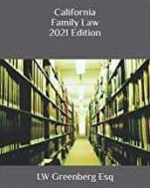Kinds of Property
California property laws provide six (6) kinds of property. They are:
1. Personal Property
Personal property is movable property owned by an individual. It is not land or attached to land. “Every kind of property that is not real is personal.”
2. Real Property
Real or immovable property is land and any and all property that is affixed to, incidental or appurtenant to it. Also, real property includes land and buildings, and anything attached to the land. Additionally, condominiums ARE real property..
3. Separate Property
Any property acquired before marriage, after separation or any time by gift or bequest is separate property. This property can be real or personal property. However, spouses can agree in writing to change the character of any property to separate or community.
4. Quasi-Marital Property
First of all, a court must make the determination that a marriage is void or voidable. Next, it must find that either party or both parties had a reasonable, good-faith belief that the marriage was valid. Then, the court must declare the marriage to be putative. Once the marriage is declared putative, the court can then divide the property that was acquired during the union equally or not. This is property that would have been community property if the union had not been void or voidable. It is called quasi-marital property.
5. Quasi-Community Property
Quasi-community property is real or personal property, wherever situated. Either spouse must have acquired this property while domiciled outside of California. And it must be property that would have been community property if the spouse(s) who acquired the property had been domiciled in this state at the time of its acquisition.
6. Community Property
Community property is all property, real or personal, wherever situated, acquired by a married person or a married couple during the marriage while domiciled in this state; the respective interests of each spouse in community property during the marriage are present, existing and equal.

